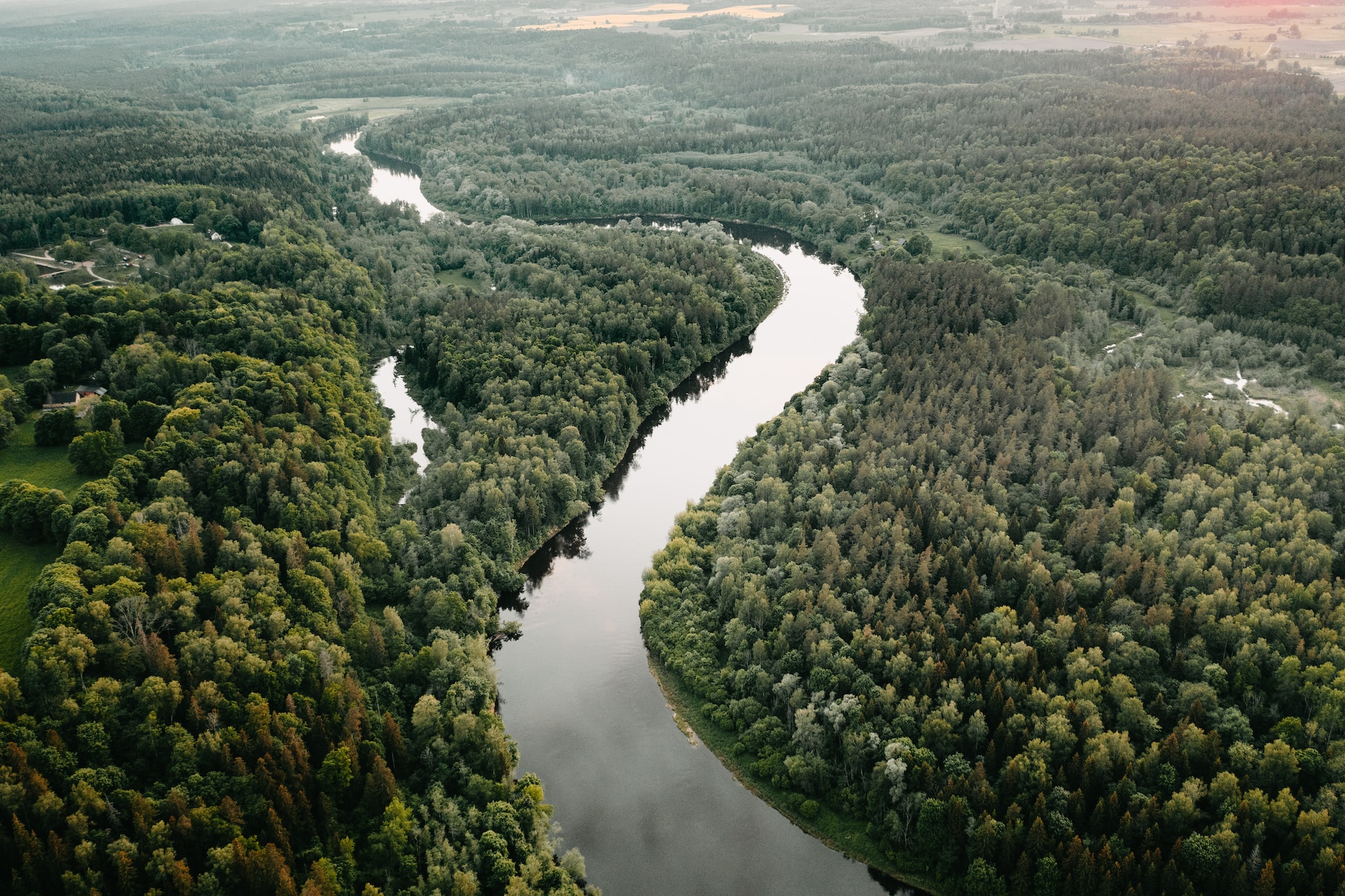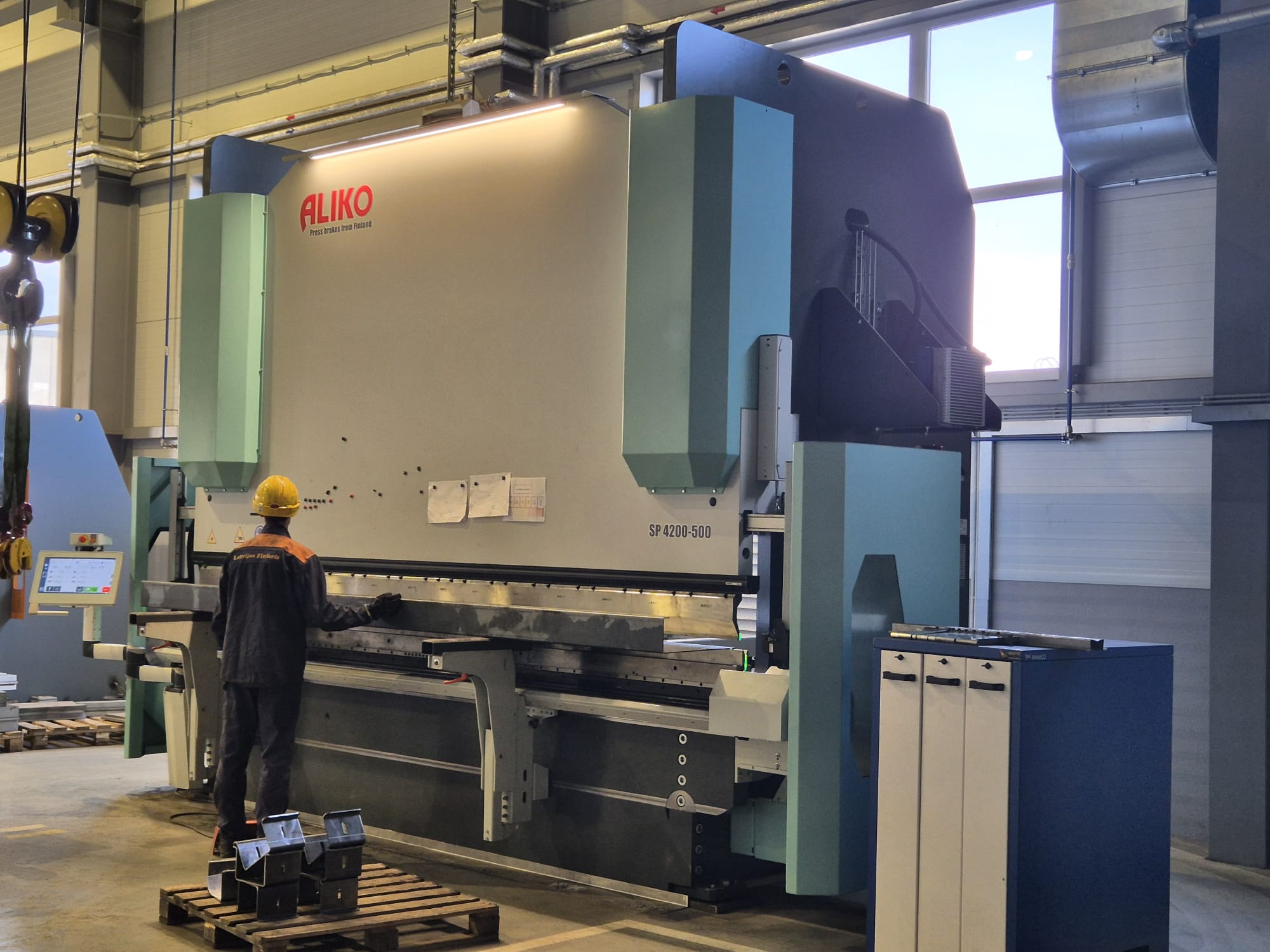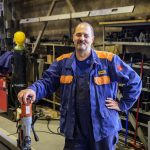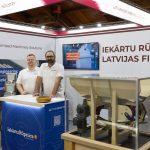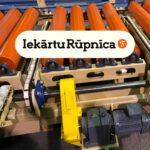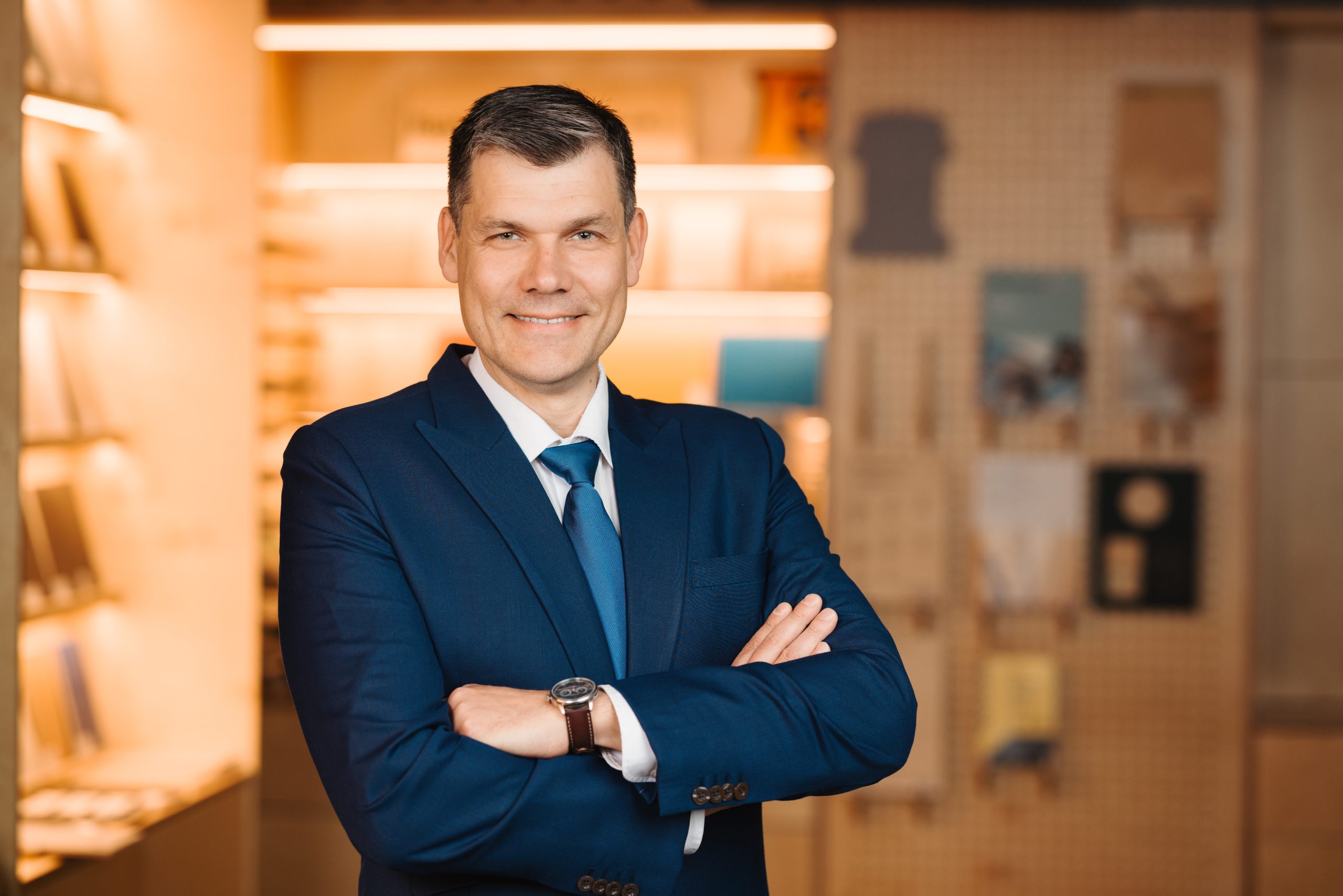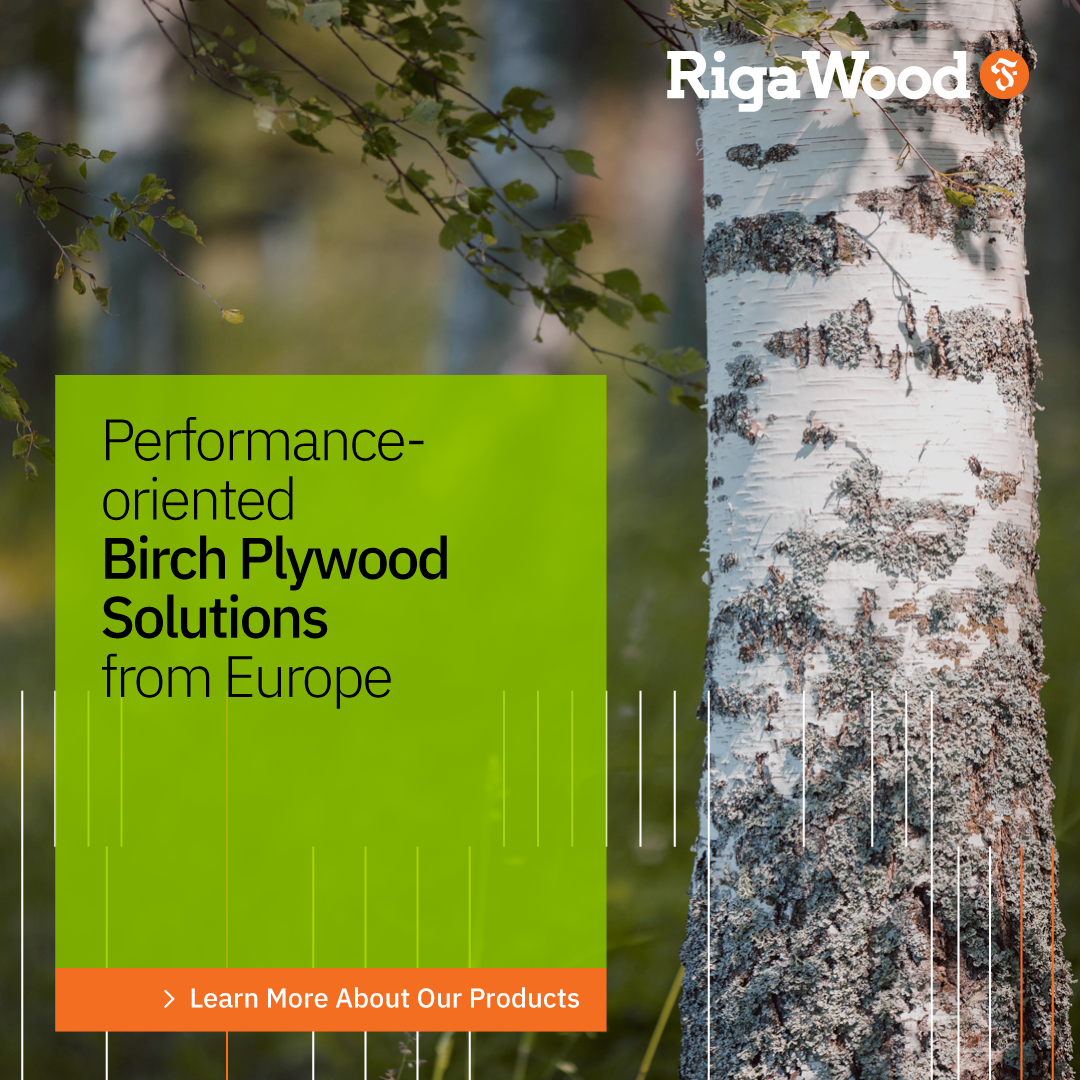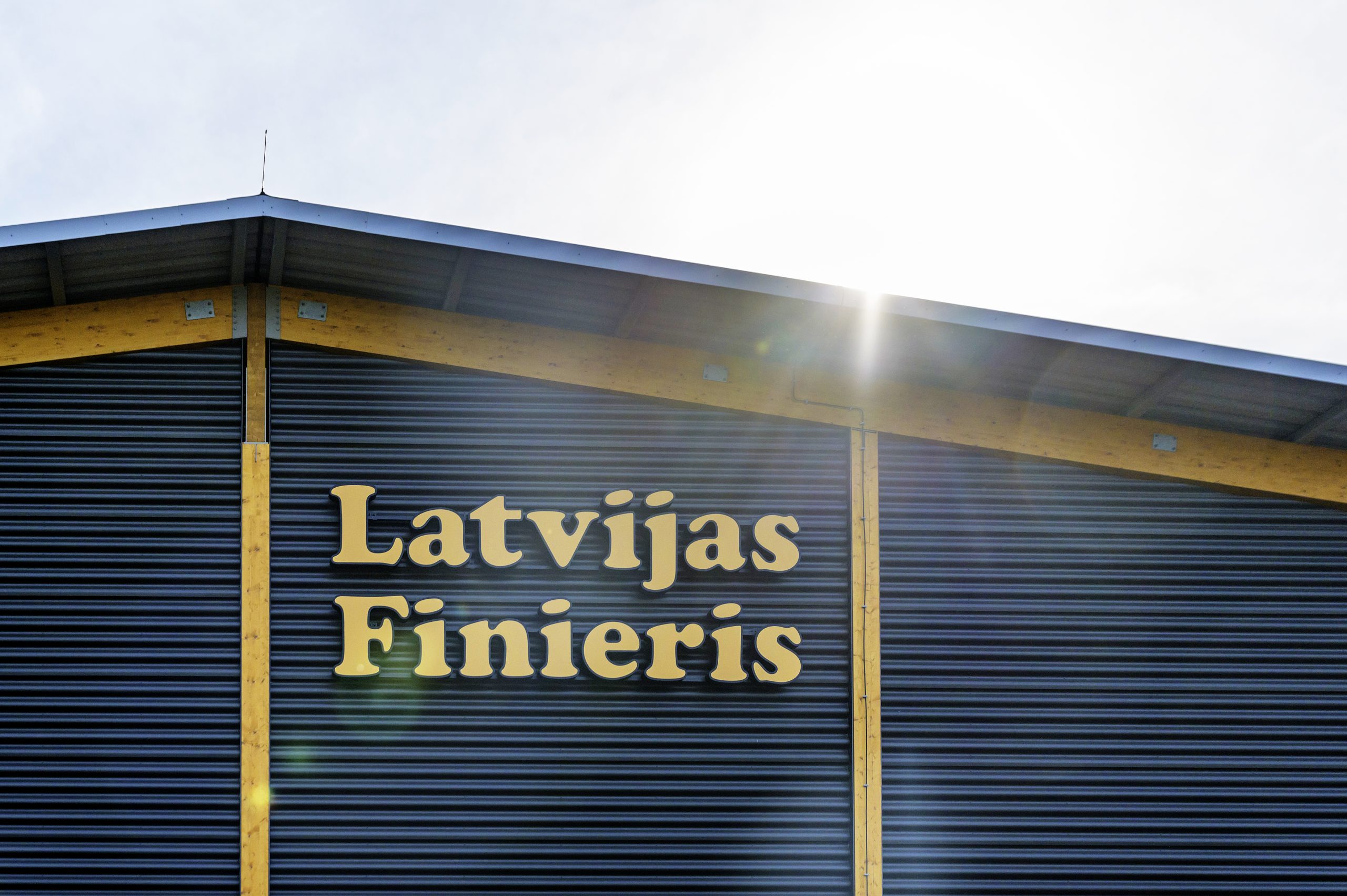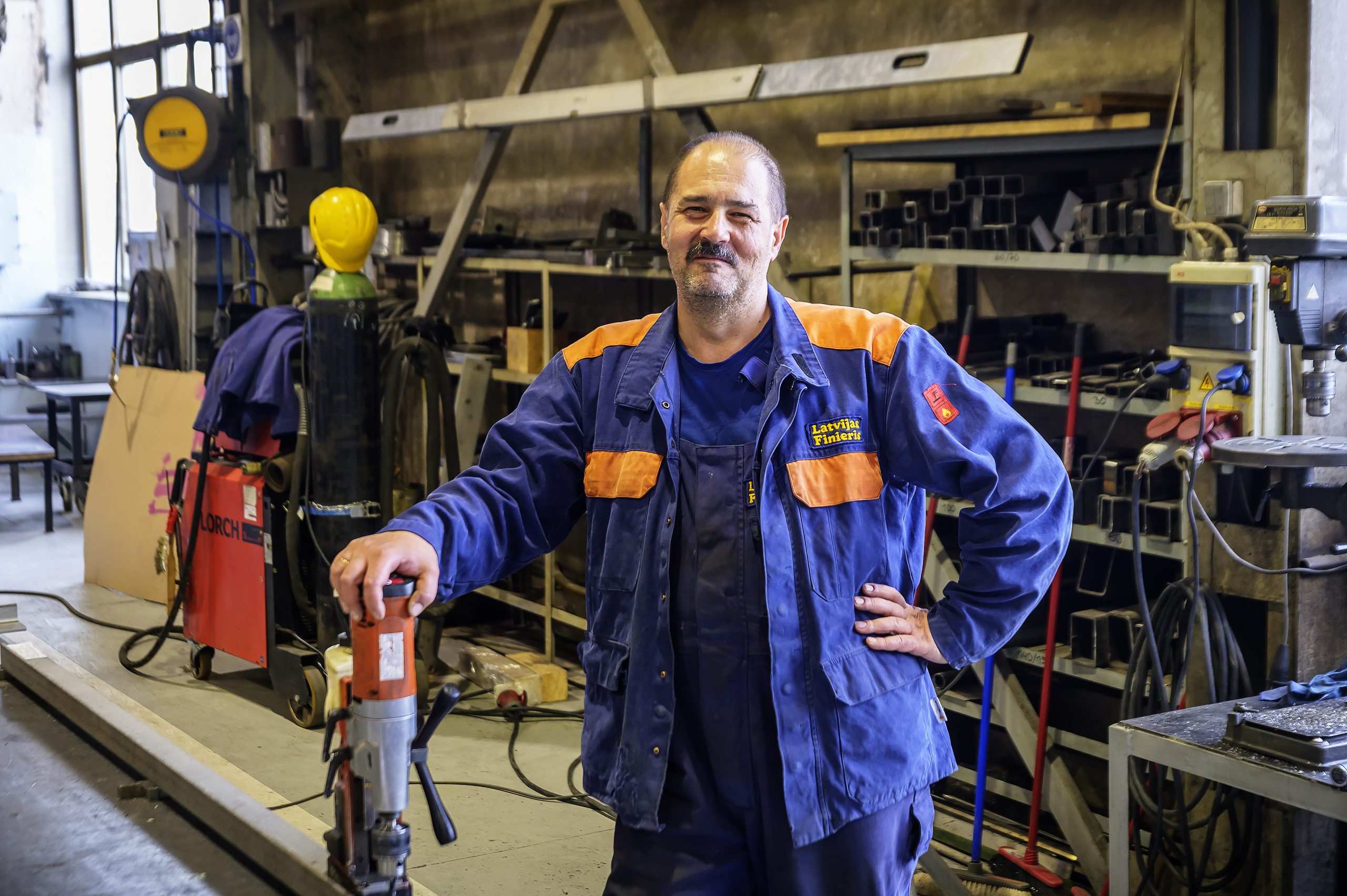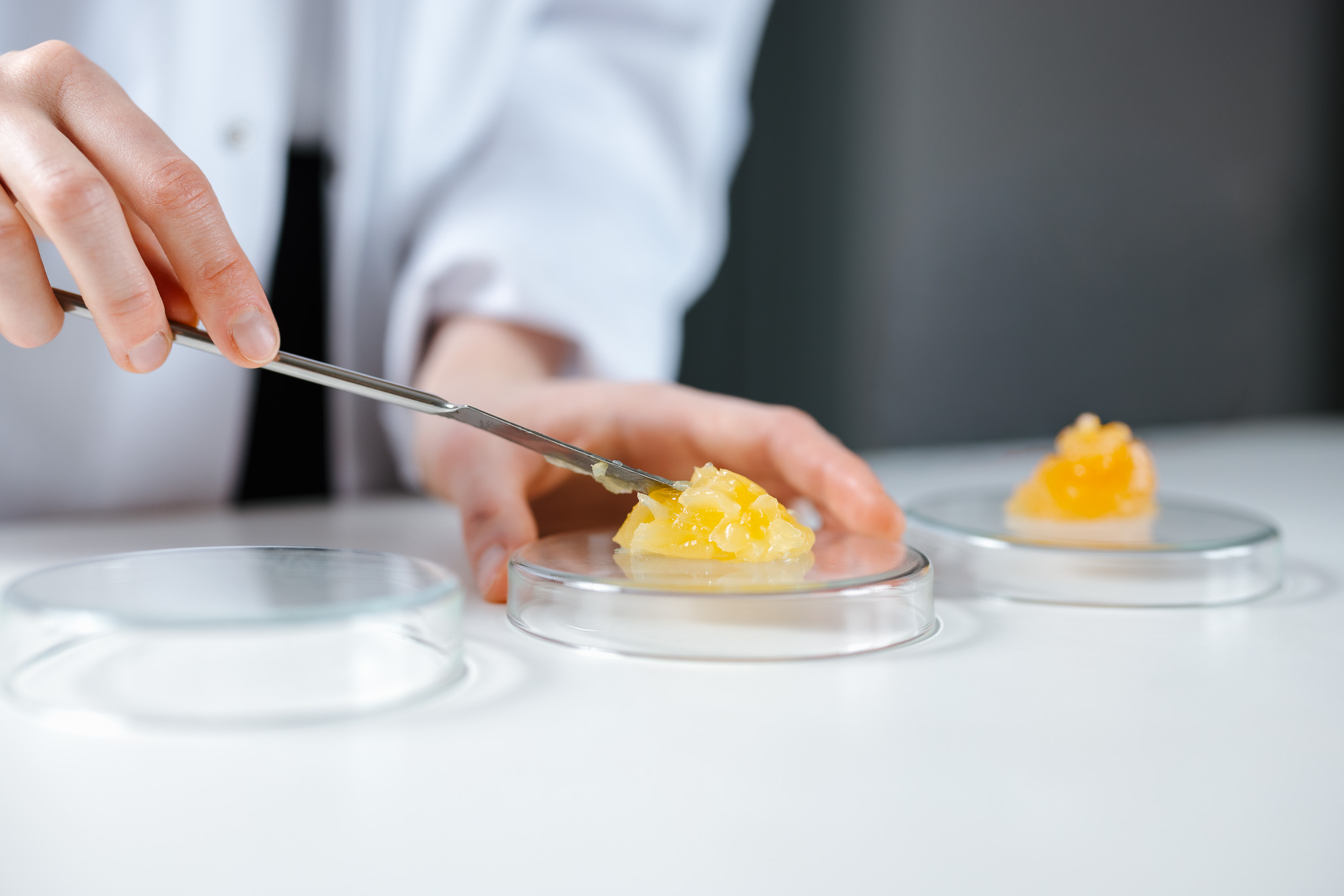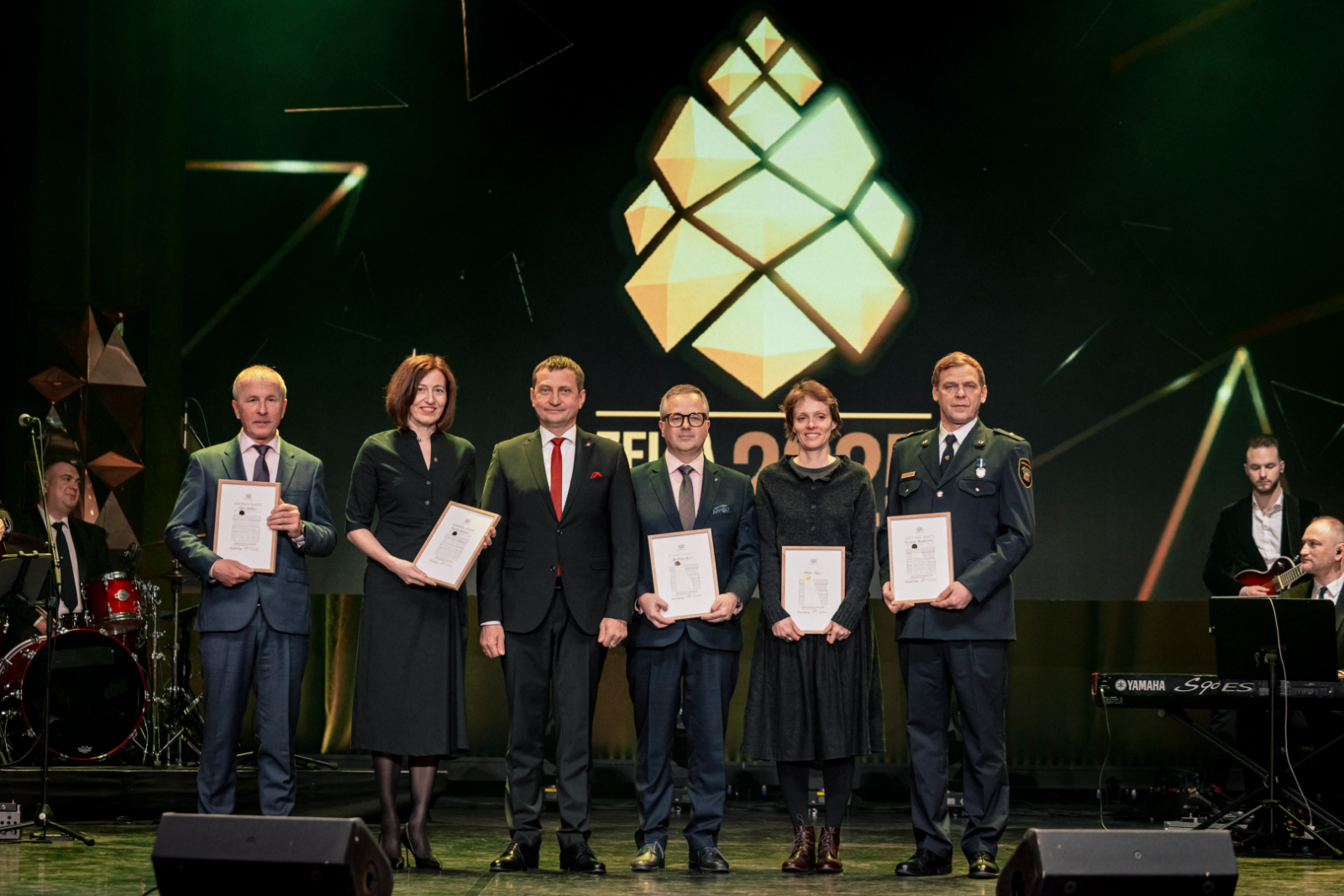Iekārtu rūpnīca – innovative mechanical engineering solutions for today and tomorrow
06.07.2025
Latvijas Finieris’ division, Iekārtu rūpnīca (IR), serves as the Group’s technical support hub and specialises in custom metalworking solutions. The mill’s specialists ensure daily maintenance for most equipment across Latvijas Finieris and its subsidiaries, while also delivering innovative mechanical engineering solutions to clients both in Latvia and internationally. June marks the 25th anniversary of the founding of Iekārtu rūpnīca. Director, Māris Bumbieris, highlights the company’s key strength – its ability to manage a full production cycle while continuously enhancing team expertise to flexibly respond to evolving demand and customer needs.
“Technical support services span a broad range of components – from the design and production of veneer and plywood manufacturing equipment and complete production lines, to maintenance, servicing, and the creation of individual components and innovative custom parts. It all adds up to full service.”
Māris Bumbieris
The number of employees at Iekārtu rūpnīca exceeds 210. The team includes engineers, designers, welders, millers, sheet metal workers, tool sharpeners, diagnosticians, and other industry experts. Māris Bumbieris emphasises that the mill’s mission has become more multifaceted in recent years:
“Back in the early 2000s, the team focused solely on metalworking, electrical engineering, and equipment assembly. In 2012, transport management was added to Iekārtu rūpnīca’s scope of operations. We subsequently began developing a technical service hub dedicated to maintaining and servicing equipment across the Group’s mills. Cutting tool sharpening, metrology services and diagnostics services have also been added. We are constantly growing and improving our expertise and operations.”
Internal and external service
Iekārtu rūpnīca primarily serves the needs of Latvijas Finieris Group, but a significant amount of work is also generated for customers – mainly outside Latvia.
“Around 40–45% of metalworking turnover comes from external customers. External customers account for approximately 30% of the mill’s total turnover”
For external customers, Iekārtu rūpnīca offers two main service types: manufacturing based on its own existing solutions, or the development of custom technical specifications by its design team – covering non-standard equipment and components – followed by full-cycle production.
“Our key competence and competitive advantage is Iekārtu rūpnīca’s ability to deliver end-to-end service – from equipment or production line design and manufacturing to delivery and installation. This is a very important aspect for our customers because they see the equipment in operation – in the intermediate stage before delivery.”
Equipment maintenance plays a vital role in developing and strengthening technical competencies. Iekārtu rūpnīca serves as the primary driver of technical service development across the Group, providing comprehensive support for one of Latvijas Finieris’ production facilities, as well as several support units.
Timely diagnostics and professional maintenance of machinery and production lines are essential to the success of any plywood and veneer mill.
New investment projects and modernisation
To maintain high quality and continuously improve operational efficiency, Iekārtu rūpnīca has regularly undertaken major investment projects. Among the first and most notable investments were the establishment of a paint shop, the insulation of the metalworking facility, and the renovation of the administration building.
“Since 2015, we have maintained a strong focus on modernising our equipment and optimising production processes. In 2015, a major European Union-funded project was implemented, providing Iekārtu rūpnīca with four new CNC machines and a heat treatment furnace. These investments have significantly enhanced the precision and speed of our machining processes while also enabling us to broaden our product offering for external customers.”
Employees and competence development
Alongside technological modernisation, a strong emphasis is placed on employee development and well-being. Multiple projects have been carried out to enhance workplace safety, the working environment, and operational processes. Work and rest areas have been modernised, furnished, and fully equipped, while process improvements have enabled employees to work more comfortably and efficiently. However, as in the metalworking sector in general, recruitment is also an issue at Iekārtu rūpnīca. M. Bumbieris explains:
“We cooperate very actively with schools. We regularly invite young people to excursions and career events to showcase that engineering is relevant and essential – and that a career in metalworking is both engaging and full of future opportunities. Each year, Iekārtu rūpnīca offers traineeships to at least 20 young people across various professions, giving them hands-on experience to explore their interests and gain clarity on potential career paths or further studies. There is also a strong focus on the development of existing employees through various training courses.”
Future vision and growth strategy
Iekārtu rūpnīca’s future development is driven by a long-term investment plan focused on expanding existing production facilities, upgrading equipment, optimising production flows, and enhancing employee well-being. In addition, the mill intends to attract even more customers from the external market, which also justifies the development of infrastructure.
“My vision is still in progress: it begins with the preparation stage, followed by the ‘black treatment’, which includes welding and then transitions to a sealed ‘clean area’ for meticulous, white-glove assembly work. We aren’t there yet, but we’re getting there,”
says the Director of IR.
The development plan also includes the integration of Industry 4.0 principles – such as sensor networks, real-time data analytics, and adaptive production processes capable of responding automatically to anomalies. These advancements are already underway, including the expansion of the CNC metalworking centre and the installation of a computer-controlled plasma-gas cutting machine, which delivers 30% faster cutting speeds and enhanced precision in shape formation.
In keeping with the times and following global practices, Iekārtu rūpnīca has also introduced Lean methods such as 5S and Kaizen to involve employees in the organisation and development of their workplaces. Each improvement adds value to the final product by reducing time spent on non-essential tasks and ensuring that tools are readily available and clearly labelled.
Importance in Latvijas Finieris Group and the external market
Iekārtu rūpnīca plays an important role in the development of Latvijas Finieris Group. Recent development projects – including the expansion of the Kohila Vineer mill, the veneer peeling facility at Kuldīgas Fabrika, and the Verems mill development – have all been executed in close collaboration with the Iekārtu rūpnīca team, which has been responsible for the full assembly of production lines, as well as the design and manufacture of individual equipment and systems.
“This approach enables us to deliver solutions that are more efficient and tailored to our Group’s needs. When we develop an idea for a piece of equipment and outsource its production, there’s a significant risk that the final result won’t fully align with our expectations. That’s why we made the strategic decision to establish our own manufacturing facility – enabling us to develop innovative engineering solutions unlike anyone else.”
Iekārtu rūpnīca’s custom-engineered solutions enable the Group to respond swiftly to market changes, adopt cutting-edge technologies, and maintain a strong competitive edge. In addition, orders from partners show that the mill is able to operate at a high level both in Latvia and abroad.
In Latvia’s industrial sector – where specialised technical capabilities and engineering capacity are often limited – Iekārtu rūpnīca stands out as a leading example of what can be achieved through sustained investment in knowledge and human capital. Māris Bumbieris highlights the strengths of IR:
“Internal self-sufficiency. The mill ensures that every engineering solution is implemented with minimum delays and in line with strict quality requirements. Development of custom solutions. Iekārtu rūpnīca not only manufactures equipment for internal use but also supplies advanced production lines to both domestic and international clients, actively contributing to export growth. Jobs and education. Collaborating with technical schools and universities to develop and upskill local professionals plays a key role in addressing labour shortages and fostering sustainable growth within the industry. Promoting innovation and automation. Iekārtu rūpnīca’s modernisation projects will contribute to the long-term competitiveness of Latvian industry.”
Future perspectives
Twenty-five years of Iekārtu rūpnīca’s operations demonstrate that technological advancement, continuous employee development, and a focused investment strategy form the foundation of a successful industrial enterprise. With a clear development vision and strategic investment programme, Iekārtu rūpnīca continues to stand as a benchmark in Latvia’s engineering industry – proving that innovation and growth can successfully coexist with stability and self-sufficiency. 25 years show that the real value of Iekārtu rūpnīca lies in its people, the knowledge they bring, and their determination. The writing of the next chapter starts today.
